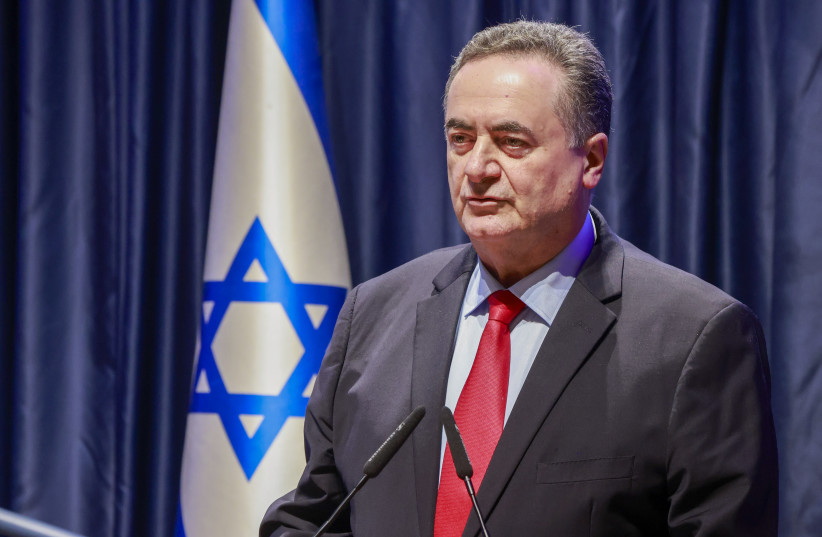The IDF assassinated the commander of Hezbollah’s elite Radwan Force, Wissam al-Tawil, Israel’s newly installed Foreign Minister Israel Katz confirmed in an interview on Channel 14 on Monday night.
"Regarding the strike in southern Lebanon, we took responsibility for that assassination of the Radwan Force commander," Katz said, adding "It's part of the war.”
His admission, as if he was declaring something already well known, so startled his interviewers that they almost did an on-camera double take, with one broadcaster warning to know when exactly it was that Israel had said it was responsible for the assassination.
A second broadcaster stated, “Now, it is taking responsibility now.”
Tawil was the most senior Hezbollah officer killed so far in the conflict, a senior source in Lebanon said, adding he played a leading role in directing its operations in the south.

More than 130 Hezbollah fighters including Radwan members have been killed in hostilities since the group's Palestinian ally Hamas attacked Israel from Gaza on Oct. 7.
It has marked the deadliest confrontation between Israel and the Iran-backed Hezbollah since they went to war in 2006, with Hezbollah firing guided rockets and other weapons at Israeli positions and Israel launching air and artillery strikes.
Citizens flee the frontier
Tens of thousands of people on both sides of the frontier have fled, and the fighting has raised concern of an even wider conflict.
Katz said that the IDF, in the last months has targeted “Hezbollah operatives, infrastructure, and systems they've set up to deter Israel.”
He spoke in advance of US Secretary of State Antony Blinken’s visit to Israel Tuesday, as part of a regional visit designed in part to find a diplomatic resolution to the conflict, such as the implementation of United Nations Security Council Resolution 1701.
During his Channel 14 interview, Katz dismissed the possibility that diplomacy could in the cross-border conflict that he already described as a war, explaining that such conversations can yield results only if there is also a strong military threat.
“If we succeed in the north” in pushing Hezbollah away from the border, it will be an achievement, Katz said.
He underscored the strong Iranian influence in Israel’s border conflict with Hamas in the south and Hezbollah in the north, as well as the Houthi threat against Red Sea shipping routes.
Katz explained that a war with Hezbollah was akin to one with Iran. “A war with Hezbollah is almost like one with Iran and a war with Iran is a war with Hezbollah,” he said.
Hezbollah is the main military arm of Iran in this region, they can fire more [misisles] at Israel than Iran can,” he said.
“Israel is prepared to operate in all of Lebanon and against both Lebanon and Hezbollah,” he said. But he clarified that he has not set a military objective of clearing Hezbollah out of Lebanon or of destroying its 150,000 missiles there.
Al-Tawil, was a senior Hezbollah official who was killed in an attack reportedly attributed to Israel by the international media. He was recently appointed commander of the Radwan force, an elite unit of the Lebanese terrorist organization. He is the most senior member of Hezbollah to be killed in an Israeli strike.
The Hezbollah commander was responsible for the ambush on October 7, 2000, at Mount Dov, when IDF combat engineers Adi Avitan, Benyamin Avraham, and Omar Sawaed were killed, kidnapped by Hezbollah, and then their bodies were returned to Israel in a prisoner exchange.
Al-Tawil was also behind the killing and abduction of soldiers Ehud Goldwasser and Eldad Regev in July 2006, an operation that led Israel to the Second Lebanon War. He was also responsible for the attack in Magidoo in March 2023, where a terrorist from Lebanon infiltrated Israel and planted an explosive that severely injured an Israeli driver.
Reuters contributed to this report.
